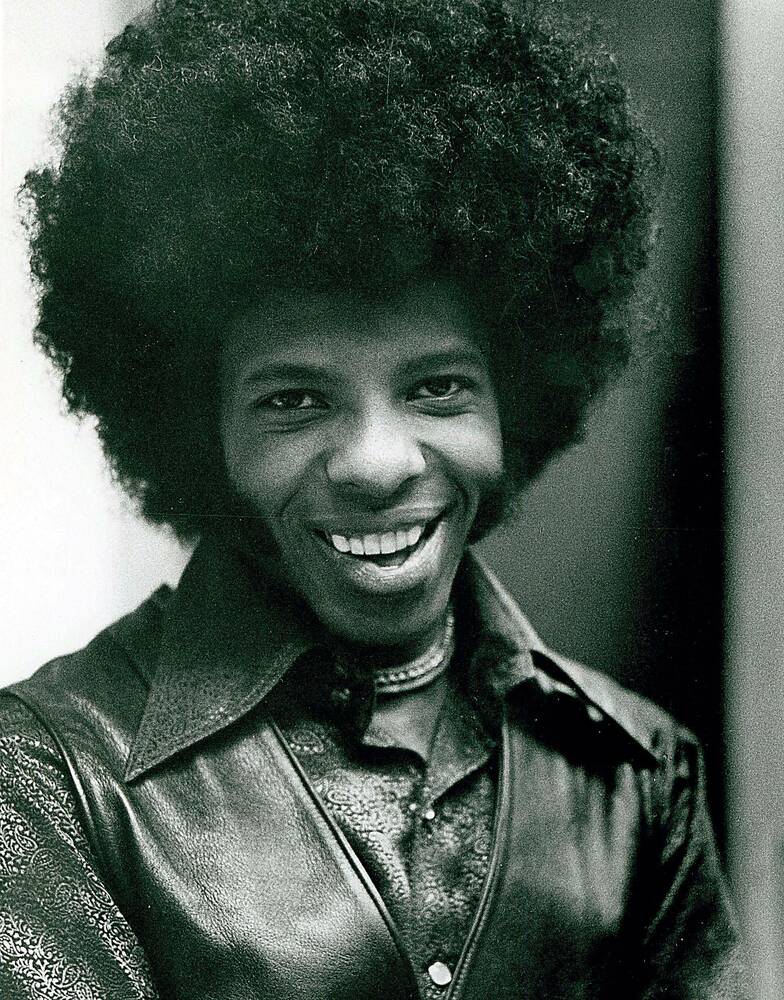


Sly Stone death has been confirmed by his family, marking the end of an era for one of popular music’s most revolutionary figures. The funk-rock pioneer who transformed the musical landscape with his groundbreaking sound passed away peacefully at age 82 after battling COPD and other health complications.
The Sly Stone death announcement came Monday through an official family statement that revealed the music legend’s passing surrounded by loved ones. His three children, closest friend, and extended family were present during his final moments, providing comfort to the artist who had retreated from public life decades earlier.
“It is with profound sadness that we announce the passing of our beloved dad, Sly Stone of Sly and the Family Stone,” the family stated regarding the Sly Stone death. The statement emphasized how the prolonged battle with COPD and underlying health issues ultimately led to this devastating loss for the music community.
The Sly Stone death represents far more than the loss of a single artist—it marks the end of a revolutionary force that fundamentally altered popular music’s trajectory. Born Sylvester Stewart in Denton, Texas, the future funk pioneer displayed extraordinary musical abilities from childhood that would eventually reshape multiple genres.
Sly Stone death tributes have poured in from across the music industry, acknowledging his unparalleled influence on funk, rock, and pop music. His innovative approach to blending genres created a distinctive sound that influenced countless artists and established new possibilities for popular music expression.
The family’s statement about Sly Stone death highlighted his status as “a monumental figure, a groundbreaking innovator, and a true pioneer who redefined the landscape of pop, funk, and rock music.” These words capture the profound impact his creative vision had on multiple musical genres.
Understanding the significance of Sly Stone death requires examining his remarkable musical journey that began in childhood. The Stewart family’s deep involvement with the Church of God in Christ (COGIC) provided young Sylvester with his first musical foundation, beginning a path that would eventually lead to international stardom.
At just eight years old, the future subject of Sly Stone death headlines was already recording gospel music with three siblings under the group name Stewart Four. This early exposure to professional recording established patterns of musical collaboration that would define his later career with Sly and the Family Stone.
The nickname “Sly” emerged during elementary school when a friend misspelled “Sylvester,” creating the stage name that would become synonymous with musical innovation. By age eleven, his multi-instrumental abilities on keyboards, guitar, bass, and drums demonstrated the versatility that made Sly Stone death such a significant loss for the music world.
Before Sly Stone death, his commitment to racial integration in music began during high school with the Viscaynes, an integrated band that challenged social norms of the late 1950s. This early dedication to diversity would become a cornerstone of his later work with Sly and the Family Stone.
The Viscaynes recorded several singles during this period, while Sly also pursued solo recording projects alongside his younger brother Freddie. These early recordings established the foundation for the musical experimentation that would make Sly Stone death feel like such a monumental loss to fans worldwide.
Remarkably, Sly Stone death came shortly after completing significant creative projects that demonstrate his enduring artistic vision. The family revealed that he had recently finished a screenplay for his life story, adding to a memoir published in 2024 that provided insights into his extraordinary career.
This continued creative output makes Sly Stone death particularly poignant, as it occurred during a period of renewed artistic activity. The upcoming screenplay project represents one final gift to fans who have long awaited deeper insights into his creative process and personal journey.
The Sly Stone death announcement has prompted widespread reflection on his revolutionary contributions to funk music development. His innovative approach to rhythm, harmony, and social commentary established funk as a legitimate musical genre while influencing rock, pop, and R&B artists for generations.
Sly Stone death tributes consistently emphasize how his music transcended traditional genre boundaries, creating a unique sound that incorporated elements from multiple musical traditions. This genre-blending approach became a template for countless artists who followed in his footsteps.
His socially conscious lyrics addressed racial equality, social justice, and cultural unity—themes that remain relevant today and ensure his influence extends far beyond Sly Stone death. These messages resonated with audiences during the turbulent 1960s and continue inspiring contemporary artists.
Sly Stone death marks the end of decades of self-imposed exile from the music industry spotlight. Often compared to J.D. Salinger for his retreat from public life, Sly became increasingly reclusive following his peak commercial success in the late 1960s and early 1970s.
This mysterious withdrawal from fame only heightened public fascination with his music and persona, making Sly Stone death feel like the conclusion of one of music’s greatest unsolved mysteries. His reluctance to engage with media or perform publicly added to his legendary status while leaving fans hungry for any glimpse into his private world.
The reclusive period before Sly Stone death was marked by sporadic public appearances and rare interviews, each one treated as significant events by music journalists and fans. His decision to step away from the spotlight at the height of his career remains one of popular music’s most intriguing decisions.
Sly Stone death has sparked renewed appreciation for his groundbreaking production techniques and musical arrangements. His use of unconventional recording methods, innovative instrumentation, and genre-blending approaches established new possibilities for popular music production.
The influence of his work extends far beyond Sly Stone death, continuing to inspire contemporary artists across multiple genres. Hip-hop producers frequently sample his recordings, while rock and funk musicians study his arrangements for inspiration and technical innovation.
Sly Stone death represents the loss of a true musical visionary whose creative approaches challenged industry conventions and expanded artistic possibilities. His willingness to experiment with sound, structure, and social commentary created a template for artistic independence that continues influencing musicians today.
The official Sly Stone death announcement emphasized the family’s commitment to preserving and sharing his artistic legacy. Their statement acknowledged the profound sadness surrounding his passing while expressing determination to ensure his “extraordinary musical legacy will continue to resonate and inspire for generations to come.”
This commitment to legacy preservation makes Sly Stone death feel less like an ending and more like a transition toward broader appreciation of his contributions. The family’s plans to share his completed screenplay and recent memoir ensure that his voice will continue reaching new audiences.
The Sly Stone death statement’s emphasis on his “enduring creative spirit” highlights how his artistic vision remained vibrant until the end, providing comfort to fans mourning this significant loss.
Sly Stone death has prompted an outpouring of tributes from fellow musicians, producers, and industry professionals who recognize his enormous influence on popular music development. These reactions consistently emphasize his role as a pioneering force who opened new creative possibilities for countless artists.
Contemporary artists across genres have shared Sly Stone death tributes that highlight specific ways his music influenced their own creative development. These personal testimonials demonstrate the ongoing relevance of his artistic innovations decades after his peak commercial success.
The breadth of Sly Stone death reactions—spanning funk, rock, hip-hop, and R&B communities—illustrates the universal impact of his musical contributions and his influence across demographic and stylistic boundaries.
Sly Stone death raises important questions about preserving and promoting his musical legacy for future generations. His family’s commitment to sharing unreleased materials and completed projects ensures that his artistic voice will continue reaching new audiences despite his physical absence.
Educational institutions and music preservation organizations have begun developing programs focused on his contributions to American popular music, ensuring that Sly Stone death will not diminish appreciation for his groundbreaking work.
The Sly Stone death legacy extends beyond individual songs or albums to encompass broader questions about artistic integrity, social consciousness, and creative independence that remain relevant for contemporary musicians and fans.
Sly Stone death marks the conclusion of one of popular music’s most fascinating and influential careers. From his early gospel recordings with the Stewart Four through his revolutionary work with Sly and the Family Stone, his journey represents the power of musical innovation to transcend cultural boundaries and create lasting social impact.
While Sly Stone death brings sadness to millions of fans worldwide, his extraordinary musical legacy ensures that his influence will continue inspiring artists and audiences for generations to come. His “iconic songs have left an indelible mark on the world,” as his family noted, creating a permanent place in popular music history.
The Sly Stone death announcement may mark the end of his earthly presence, but his revolutionary musical vision will continue shaping popular music’s future, ensuring that his creative spirit lives on through the countless artists he inspired and the timeless recordings he left behind.
